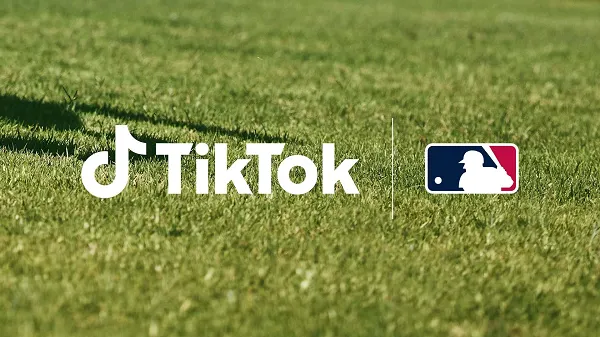Healthy Returns: AstraZeneca cholesterol pill shows promise as race with Merck heats up
AstraZeneca's new cholesterol pill is showing promise, while the FTC urged a potential buyer of 23andMe to protect user data.

Signage at the AstraZeneca facility in Gaithersburg, Maryland, US, on Monday, Aug. 26, 2024.
Graeme Sloan | Bloomberg | Getty Images
A version of this article first appeared in CNBC's Healthy Returns newsletter, which brings the latest health-care news straight to your inbox. Subscribe here to receive future editions.
The race to develop more convenient versions of drugs that lower cholesterol is heating up after AstraZeneca released encouraging new data on an experimental pill.
AstraZeneca and Merck are the main drugmakers testing oral versions of so-called PCSK9 Inhibitors, which reduce levels of low-density lipoprotein (LDL) cholesterol, or what is known as "bad" cholesterol. Those medications, such as Amgen's Repatha, are typically injections.
High LDL cholesterol is the top driver of cardiovascular events such as heart attacks and strokes. Still, more than 70% of patients taking statins aren't reaching the target level for cholesterol, according to Mina Makar, who heads AstraZeneca's global cardiovascular, renal and metabolism biopharmaceuticals business.
He said that leads to 4 million to 5 million deaths worldwide due to elevated cholesterol. While PCSK9 injections have helped treatment reach more patients, their use has still been "very limited," Makar said. That's due to several factors, such as challenges related to cost and access and hesitancy among some cardiologists and primary care physicians.
"That's why we're really excited about our oral PCSK9," Makar said. "I think it has the chance to really democratize access to what these patients really need, which is something to get the majority of them" to their target cholesterol levels.
In a note last week, Goldman Sachs analysts said oral treatments could drive growth of the PCSK9 class to around $12 billion in sales by 2034, up from about $4 billion currently. The analysts expect AstraZeneca's oral PCSK9 to be "well-placed in the class," and they forecast peak sales of the drug to be around $4 billion by 2037.
Now, let's dive into the new mid-stage trial data. It was presented at the American College of Cardiology's Annual Scientific Session in Chicago.
After 12 weeks, the experimental pill lowered LDL cholesterol by nearly 51% when taken once a day on top of a standard statin therapy, according to AstraZeneca. The pill helped 84% of patients meet the recommended cholesterol level, compared to just 13% of those who took statins alone.
Patients in the trial tolerated the pill well, and adverse side effects were comparable between those who took AstraZeneca's drug and people who received a placebo.
Those results show promise against Merck's treatment, though it is difficult to compare data without head-to-head clinical trials. Merck's oral PCSK9 is also much further along in development, with late-stage trial data expected this year.
Early data also suggests Merck's drug could be more effective than AstraZeneca's treatment, according to Goldman Sachs analysts. But they still see "significant opportunity" for AstraZeneca's pill given the size of the market for PCSK9s and the "potential for differentiation on convenience."
Merck's drug is what's known as a macrocyclic peptide, which requires patients to fast before taking it to allow for proper absorption. That "could be burdensome and exacerbate compliance issues in an asymptomatic disease area where there is reluctance to intensify therapy," the Goldman Sachs analysts wrote.
But AstraZeneca's pill is a small-molecule drug, so it does not have any food restrictions or fasting requirements.
Makar said another advantage of having a small molecule drug is that it is easy to combine with other therapies in the company's pipeline. For example, AstraZeneca is considering combining it with its statin, its GLP-1 drug for weight loss or its treatment ezetimibe, which is a cholesterol medicine for patients who can't tolerate statins, he said.
Merck has similarly discussed the potential of combining its oral PCSK9 with other treatments, calling it a "pipeline in a product."
We'll continue to follow the ongoing race to develop oral PCSK9s, so keep track of our coverage!
Feel free to send any tips, suggestions, story ideas and data to Annika at annikakim.constantino@nbcuni.com.
Latest in health-care tech: FTC says 23andMe buyer should 'expressly agree' to adhere to privacy policies
The Federal Trade Commission on Monday urged the embattled genetic testing company 23andMe not to sell consumers' data unless the buyer agrees to adhere to strict privacy and data security standards.
23andMe, which was once valued at $6 billion, filed for Chapter 11 bankruptcy protection in Missouri federal court last month. This means its assets — including its vast genetic database — are up for sale.
"Any purchaser should expressly agree to be bound by and adhere to the terms of 23andMe's privacy policies and applicable law, including as to any changes it subsequently makes to those policies," FTC Chairman Andrew Ferguson wrote in a letter.
The company rocketed into the mainstream because of its at-home DNA testing kits that gave customers insight into their family histories and genetic profiles. The five-time CNBC Disruptor 50 company went public in 2021 via a merger with a special purpose acquisition company, but it struggled to generate recurring revenue and stand up viable research and therapeutics businesses in subsequent years.
DNA data is particularly sensitive because each person's sequence is unique, meaning it can never be fully anonymized, according to the National Human Genome Research Institute. If genetic data falls into the hands of bad actors, it could be used to facilitate identity theft, insurance fraud or other crimes.
23andMe has repeatedly said it will not change how it manages or protects consumer data throughout the sale process. Similarly, in a release last week, the company said all potential buyers must agree to comply with its privacy policy and applicable law.
"To constitute a qualified bid, potential buyers must, among other requirements, agree to comply with 23andMe's consumer privacy policy and all applicable laws with respect to the treatment of customer data," 23andMe said in the release.
At this point, it's not clear who will purchase 23andMe's assets. Anne Wojcicki, who resigned as CEO last month, said in a post on X that she will pursue the company as an independent bidder. Wojcicki co-founded 23andMe in 2006, and she has submitted several unsuccessful proposals to take the company private over the last year.
All of Wojcicki's offers have been rejected by 23andMe's special committee, which was convened in March of 2024 to evaluate the company's path forward.
If you want to learn how you can delete your data from 23andMe, you can read more here.
Feel free to send any tips, suggestions, story ideas and data to Ashley at ashley.capoot@nbcuni.com.

 JaneWalter
JaneWalter 































